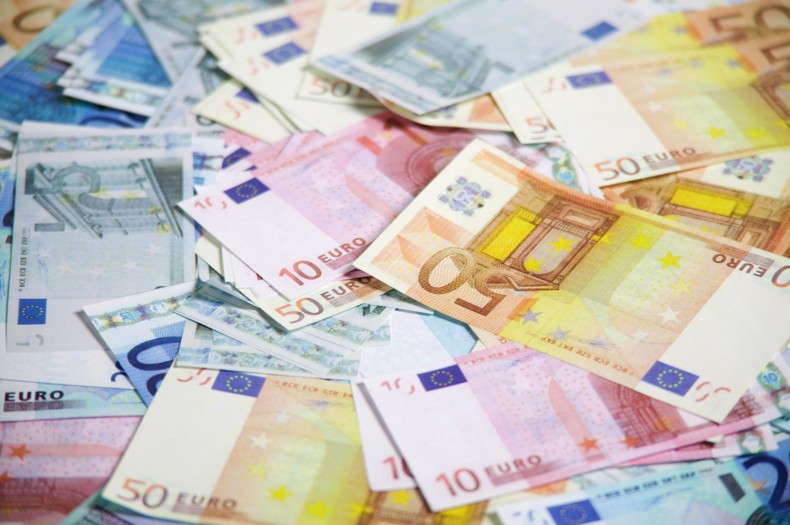On September 4, the European Central Bank lowered the interest rate on its main refinancing operations by 10 basis points to 0.05%. In addition, the interest rate on its marginal lending facility was reduced by 10 basis points to 0.30% and the interest rate on its deposit facility was reduced by 10 basis points as well to -0.20%.
These rate cuts came as a bit of a surprise to the markets since only three months ago the central bank cut interest rates and was waiting for these cuts to stimulate economic growth.
Unfortunately, growth has slowed rather than jumped since then…
For Europe, the Trap Is Set…
More in line with expectations, the ECB also announced that it will begin buying a broad array of asset-backed securities, which the market expected more than further interest rate reductions. This will be a new initiative for the ECB and one that will likely lift short-term equity prices. Every previous time a central bank has launched a bond-buying program, stocks have jumped and bonds have sold off.
With German 10-year bond yields under 1% and Italian and Spanish 10-year yields dropping below U.S. 10-year yields, any sell-off would be overdue in the minds of many market players based on fundamentals alone.
European stocks rallied after the announcement, with the Bloomberg European 500 Index rising by 1.15%. Germany’s DAX rose by 1.02% as well. European bonds also rallied, leaving the two-year yield below zero in eight countries. Ten-year yields in Ireland and Italy ended the day at record lows. The euro, which weakened significantly over the summer on expectations that the ECB would be pushed to move more aggressively to deal with weakening European economies, weakened further today to $1.2948, off 7.5% from its 52-week high of $1.3993.
The ECB’s announcement was spurred by ever-declining inflation in the Eurozone. Last month, inflation languished at 0.3% in Europe, far below the ECB’s 2% target. The ECB lowered its GDP forecast to 0.9% this year and 1.6% in 2015 compared to previous projections of 1% and 1.7%, respectively. The ECB is clearly concerned about slowing economic momentum in the region, which is being worsened by the crisis in the Ukraine.
From an investment standpoint, the euro is likely to drop further as the ECB works to stimulate the Eurozone and the U.S. Federal Reserve moves into tightening mode as it ends its bond purchases in October and then starts raising rates no later than June 2015.
Investors should be able to short the euro against the dollar with good success for some near-term profits. Note: Over the long term, the dollar has some considerable Federal Reserve misguidance sending it on a very concerning path. We will keep a close eye on developments there.
Precedent Means the ECB’s Failure Is Assured
The ECB’s actions are clearly intended to spur inflation and grow the money supply. By moving its deposit rate deeper into negative territory today, the ECB is taking an increasingly activist approach to policy. The question is whether these steps will be enough to do more than prompt a short-term rally in European markets…
The Bank of Japan has taken massive steps to reignite inflation in that country with the result that markets have rallied but little progress has been made in the real economy. The problem – in both Europe and Japan, as well as the United States – is that aggressive monetary policy has not been matched by any meaningful fiscal policy initiatives whatsoever.
The result has been massive infusions of liquidity into financial markets but little progress in producing meaningful growth in the economy.
ECB President Mario Draghi noted the lack of fiscal policy action in Europe, but acknowledging such a void doesn’t solve the problem. Instead, markets are left celebrating another set of empty gestures by central bankers that keep using their limited set of tools to push the world closer to another financial crisis.
Why is that the case? Because all of the new money being created is in the form of debt, and the global economy lacks the productive capacity to repay that debt. That leaves massive inflation and currency deflation as the only possible ways to manage the huge debt burdens being created, which guarantees that the current policy regime will end in tears.
The only question is when, not if.
http://moneymorning.com





